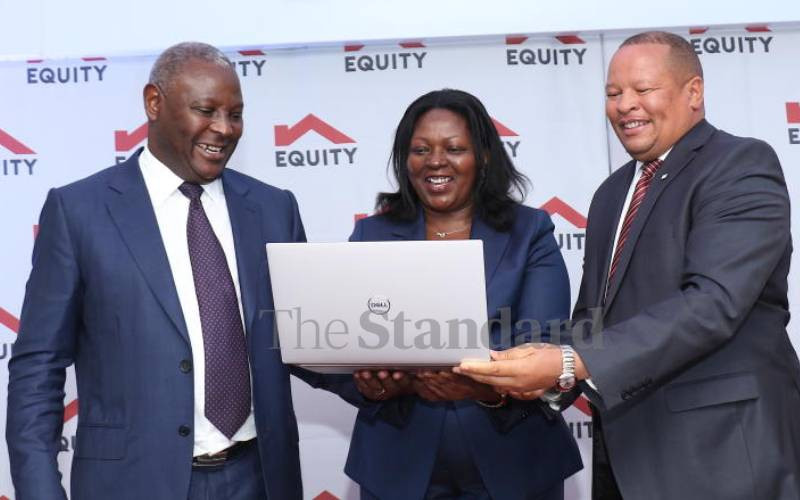×
The Standard e-Paper
Kenya’s Boldest Voice

Equity Bank recorded a net profit of Sh24.4 billion in the first half of this year on the back of increased income on lending as well as fees and commissions.
This was a growth of 36 per cent compared to a profit-after-tax of Sh17.9 billion that the lender recorded in the first six months of last year.







